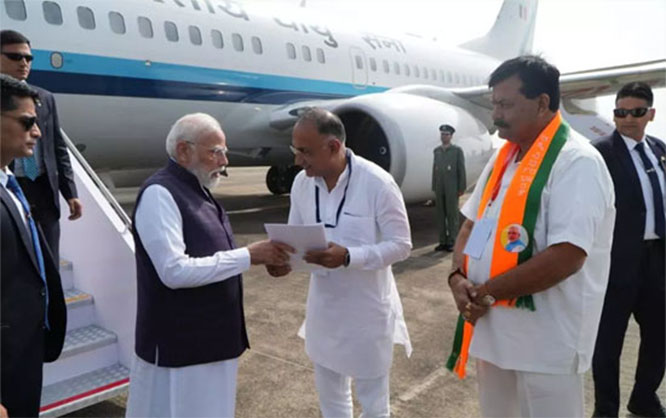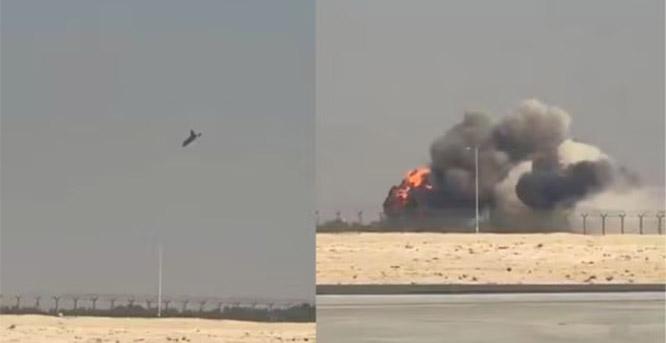New Delhi, Sept 15: After its recent withdrawal from the Afghanistan, the United States has hinted that it has been in talks with the government of India for using airfields in India as “staging areas” for carrying out aerial surveillance and launching attacks on terrorists in Pak-Afghan region.
President Joe Biden’s administration is “deeply engaged” with New Delhi, the US Secretary of State, Antony Blinken, said, testifying before the Foreign Affairs Committee of the House of Representatives – the lower house of the American Congress.
He was responding to Republican Party’s Representative Mark E Green, who asked if the Biden Administration had reached out to New Delhi for using “over-the-horizon” capabilities from “staging areas” in north-west India for neutralising potential threats to the United States in and around Afghanistan, in view of the collusion between the Taliban and the Inter-Services Intelligence (ISI) of Pakistan.
“We are deeply engaged with India across the board,” Blinken replied to Green.
He, however, did not share the details of the discussion between the two governments on the US launching drones from India for keeping watch on terrorist infrastructures in Afghanistan.
“With regard to any specifics about over-the-horizon capabilities and the plans we put in place or continue to put in place, I would rather take that up in a different setting,” Blinken replied to Green.
The Taliban of late returned to power in Afghanistan through a swift military campaign across the country taking advantage of the withdrawal of the US troops.
Biden and other senior officials of his administration in Washington DC repeatedly stated over the past few weeks that the US had sent troops to Afghanistan in 2001 in response to the 9/11 terrorist attacks and to neutralise the threat posed by Osama Bin Laden and his Al Qaeda – the objectives, which had been achieved over the past two decades.
Though terrorism continued to remain a threat and spread around the world, the US no longer required to deploy a large number of soldiers overseas to combat the menace as it had now developed the “over-the-horizon” capabilities of carrying out aerial surveillance and launch drones to eliminate such threats, they argued, justifying the withdrawal of troops from Afghanistan.
But what may limit the US' capabilities of launching drone attacks on the terrorists and terror infrastructures in the region is the fact that some of the airbases it had earlier used for the purpose are no longer available to it after its withdrawal from Afghanistan.
The nearest airbases the US can use are in Qatar, Kuwait and other countries in the Gulf and far away from the Afghanistan-Pakistan region where the targets may be located – a fact Green pointed out while asking Blinken about the Biden Administration’s discussion with New Delhi.
New Delhi did not officially make any comment on Green’s query or the reply given by Blinken.
The Commander of the US Special Operations Command, General Richard D Clarke, had visited New Delhi in July and held a meeting with the Indian Army chief Gen M M Naravane.
Admiral John C Aquilino, Commander of the United States Indo-Pacific Command, also visited New Delhi and held a meeting with Chief of Defence Staff General Bipin Rawat, just about 10 days after the Taliban’s return to power in Afghanistan.
India is a “major defence partner” of the US and the two nations had inked a Logistics Exchange Memorandum of Agreement (LEMOA) in 2016, creating a framework to support each other's aircraft, ships and personnel with logistics, fuel and spares.
They also signed the Communications Compatibility and Security Agreement (COMCASA) in 2018 and the Basic Exchange and Cooperation Agreement (BECA) in 2020 to enable the exchange of geospatial information between the two countries.







Comments
Add new comment